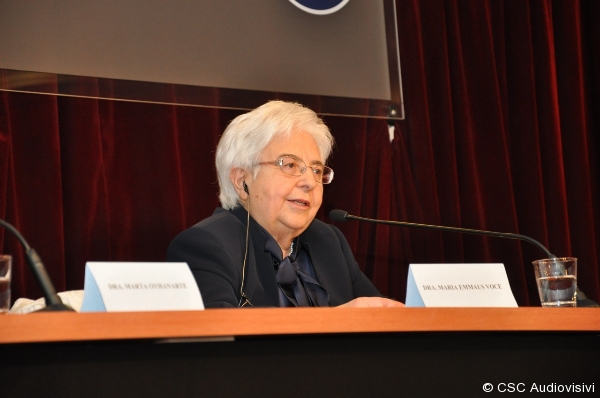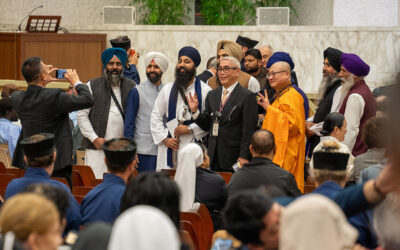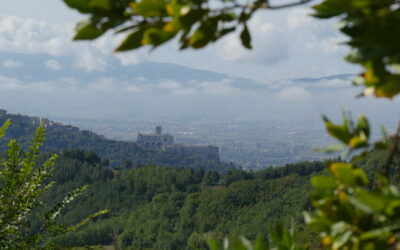 ‘The charism of unity in dialogue with contemporary culture’ was the theme of Focolare president Maria Voce’s recent meeting in Buenos Aires on 13 April. In fifty years of the Movement’s activity in Latin America, its members’ life has touched many cultural environments. This was the context of what Maria Voce said to a hall packed with more than 300 people at the University of Buenos Aires’ Faculty of Economic Sciences.
‘The charism of unity in dialogue with contemporary culture’ was the theme of Focolare president Maria Voce’s recent meeting in Buenos Aires on 13 April. In fifty years of the Movement’s activity in Latin America, its members’ life has touched many cultural environments. This was the context of what Maria Voce said to a hall packed with more than 300 people at the University of Buenos Aires’ Faculty of Economic Sciences.
Quoting Chiara Lubich, she recalled that ‘the powerful contradictions that mark our age need an orientating key as powerful and effective as they are. This mean a set of categories and activities capable of inspiring individuals, as well as entire peoples, with its patterns of economic, social and political life. Such a universal idea exists. It is showing itself able to meet the challenge of our times: universal fraternity.’ She went on to say that ‘the idea of fraternity is acquiring academic credibility. It is an effective cultural category with a single source, the charism of unity, and with multiple impact as it comes to be accepted in the most varied cultural contexts, promotes a wide range of values and has various practical and social applications.’
Several of the distinguished people present took Maria Voce’s words as a starting point for their own reflections. Marta Oyhanarte, a member of the UN’s Social and Economic Council, emphasized that ‘a new social contract based on fraternity needs to be formulated, not just in the political and economic spheres, but in all fields, a 360 degree dialogue.’ Cristian Cox, Dean of the Catholic University of Chile, referred to how the idea of fraternity could influence educationally: ‘Our study programmes do not offer an education in how to establish relationships with those who are different, those who are distant culturally and socially. In all sturdy programmes fraternity ought to occupy an equivalent place to that which till now has been occupied by the idea of the nation.’ Rafeal Velazco, Rector of the Catholic University of Cordoba, referred to the development of a theology of fraternity that, to give a convincing witness of the gospel message, must take an option for the poor, for those marginalized from history. He said: ‘God does not look down from above, but from the margins, from the edges.’ He finished by asserting: ‘A theology of fraternity is born with the new commandment, which when it is lived radically generates unity and has an amazing result: Jesus himself, the Risen Lord, who comes to be present among us.’
At the end of a brief series of questions, referring to how to dialogue within plural and complex context like Latin America, Maria Voce affirmed: ‘Latin America can be a gift to humanity precisely because of its deep cultural roots. It can give an example of building a new society where diversity is not a problem but becomes a richness. I say this as a European, I ask you to give us this experience, the world needs to see this realized in a specific place and I think that these lands are suitable for this.’ Words like these have tremendous weight in a region that has always felt it suffered from discrimination, from exclusion. The enthusiastic applause that met her words expressed the desire to change history.
By Alberto Barlocci




0 Comments